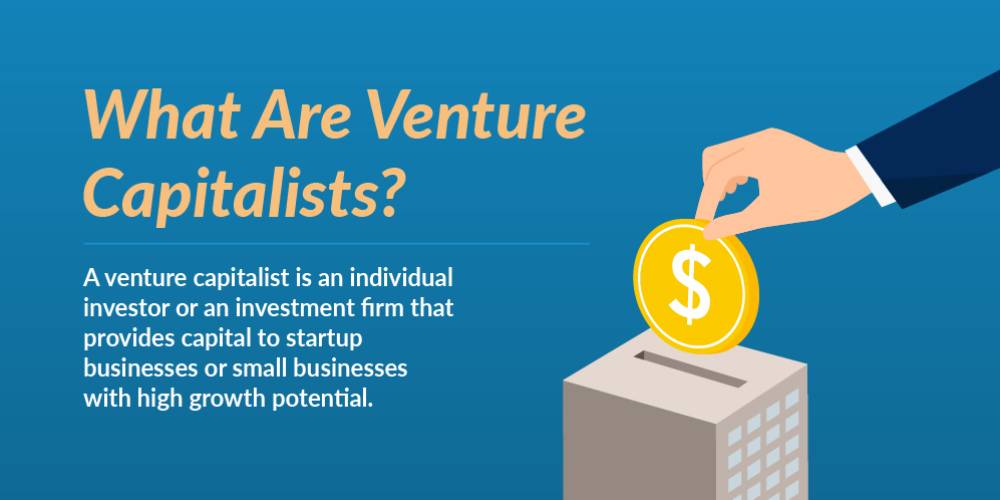Contact Our Firm
The use of the Internet or this form for communication with the firm or any individual member of the firm does not establish an attorney-client relationship. Confidential or time-sensitive information should not be sent through this form.
I have read and understand the Disclaimer and Privacy Policy.

Equity vs. Debt Financing for Florida Venture Capitalists
 Raising capital could well be one of the most crucial steps for Florida venture capitalists. Florida is a thriving hub for startups, particularly in the fields of hospitality, healthcare, real estate, and technology. This fact attracts investors to the state, eager to capitalize on early-stage opportunities. Before a commercial business deal closes, it is essential to address a significant question: Is equity financing or debt financing the most suitable path forward?
Raising capital could well be one of the most crucial steps for Florida venture capitalists. Florida is a thriving hub for startups, particularly in the fields of hospitality, healthcare, real estate, and technology. This fact attracts investors to the state, eager to capitalize on early-stage opportunities. Before a commercial business deal closes, it is essential to address a significant question: Is equity financing or debt financing the most suitable path forward?
Each option carries its own set of legal implications, risks, and benefits. The choice between equity financing and debt financing can significantly impact a company’s legal and financial future, as well as its growth. If you are currently debating between debt and equity financing as a Florida venture capitalist, having a strong Oakland Park, FL business and commercial law attorney can make a major difference in the outcome of your venture.
What Are Venture Capitalists?
A venture capitalist is an individual investor or an investment firm that provides capital to startup businesses or small businesses with high growth potential. Venture capitalists often pool funds from various sources, investing those funds in promising new companies that appear to have innovative ideas or a rapidly expanding market. Venture capitalists often provide valuable business guidance, strategic business input, mentorship, and connections that can help companies grow and achieve success.
Most venture capitalists invest in a portfolio of companies, which mitigates the risk of a company’s failure in exchange for very high returns when an investment sees significant success. Venture capitalists actively participate in the companies they fund, particularly in equity financing. Often, the ultimate goal is to help a startup achieve a successful "exit," whether that exit involves acquisition by a larger company or going public through an IPO.

What is Equity Financing?
Equity financing involves raising capital by selling partial ownership (equity) in a company to investors in exchange for cash. Investors who offer equity financing to a company gain a stake in the company’s future profits and growth. Simultaneously, the investor also shares any potential losses. The company issues and sells stock shares to individual investors (or firms) who become shareholders.
Investors often gain voting rights with these stock shares and a share in any company profits. The funds received are not loans, so there is no repayment. This allows flexibility for a startup with limited resources. Investors expect a return on their investment (ROI) through future dividends or by selling their shares at a price higher than the one they paid. Equity financing is common in venture capital, crowdfunding, and angel investment.
A downside of equity financing for the business owner is a loss of control, as a percentage of ownership and some control over business decisions is the price for the investment. Some business owners may not be on board with this dilution of their ownership and control. There may also be conflicts with shareholders that owners must deal with.
Florida has corporate law requirements for equity financing, including securities compliance under Florida Blue Sky Laws, which are found within the Florida Securities and Investor Protection Act (Title XXXIII Regulations of Trade, Commerce, Investments, and Solicitations; Chapter 517). For venture capitalists with diversified portfolios who seek to minimize risk, providing equity financing to a new business can be both exciting and lucrative.
What is Debt Financing?
Debt financing occurs when a company or individual borrows money from an external source. That external source could be a bank, another lender, or an individual, like a venture capitalist. The borrower promises to repay the principal amount loaned with interest, on a set schedule. Debt financing provides businesses with capital for growth or operations, without the necessity of surrendering control of the company or letting go of any level of ownership. Business loans, lines of credit, and bonds are all examples of debt financing.
To begin debt financing, a business or individual applies for and receives money from a lender. The borrower and the lender agree to the terms of the loan (amount, interest rate, repayment schedule, and collateral, if required). The principal amount plus the specified interest is repaid through regular payments over an agreed-upon timeframe. Unlike equity financing, the lender does not gain ownership rights or voting rights in the company. Examples of debt financing include:
- Bonds, which are debt instruments sold to individuals or institutional investors that promise to repay principal and interest
- Merchant cash advances that involve receiving a lump sum in exchange for a percentage of future credit and debit card sales
- Invoice financing, which means borrowing against outstanding invoices to obtain immediate cash
- Commercial loans from a bank to finance a business, including operations or expansion
- Revolving rounds of credit that provide access to funds as needed
The downsides of debt equity include the burden of repayment, particularly in a business that has inconsistent revenues. There is always a risk of foreclosure or default with debt equity, and, in some cases, lender covenants can restrict business flexibility. The positive aspects of debt equity include the fact that interest payments can be tax-deductible, the repayment schedules are predictable, and ownership and control remain intact.
What Legal Issues Must Venture Capitalists Weigh in Florida?
Florida has state-specific filing requirements for equity offerings, and exemptions may be available for private placements. If a venture capitalist chooses debt equity, the loan covenants and terms must be carefully drafted. Some "middle-ground" or hybrid financing options may include convertible notes and SAFE agreements. A convertible note is a short-term loan to a startup that can be converted into equity at a later financing round.
This affords investors downside protection similar to debt financing, with the upside of equity financing. SAFE (Simple Agreement for Future Equity) Agreements are legal contracts between a startup and an investor that allow the investor to purchase equity in the company at a future date. SAFEs were first developed in 2013 as an alternative to convertible notes. While the two are similar, SAFEs do not accrue interest or have a maturity date.
Contact a Fort Lauderdale, FL Business Lawyer
Choosing between debt financing and equity financing is about much more than money. Florida laws impose unique requirements on both paths. An experienced Oakland Park, FL business and commercial law attorney from The Elliot Legal Group, P.A. can help you, as a venture capitalist, navigate financing decisions or guide you through the regulatory, tax, and contractual complexities of each option.
Attorney Elliot practices both international business law and Florida business law. He is a licensed solicitor in both England and Wales. Throughout his accomplished career, Attorney Elliot has represented a wide range of clients, including single-member LLCs and Fortune 500 companies. Call 754-332-2101 to schedule your initial attorney meeting.















